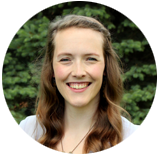
Cindy Celi (WWTF ’15)
BIOGRAPHY
Cindy Celi has taught Architectural & Engineering Design and Sustainable Technologies at West Orange High School for four years. Before teaching, Cindy worked in an architectural design firm and had the chance to work on exciting projects. Cindy realized that something was missing and searched for an opportunity to merge her passion for design and education. In 2015, she was given that chance through the Woodrow Wilson New Jersey Teaching Fellowship. She completed her Fellowship at The College of New Jersey and enjoyed being a part of such a wonderful organization. Cindy enjoys every moment of teaching, even during these difficult times.
SCHOOL PROFILE
- Large school
- Urban
- Traditional Public School
- Enrolled Students: 2,095
- Free/Reduced Price Lunch Eligible: 38%
- Demographics: 80% minority
SESSION ABSTRACT
During the early transition to virtual learning, Cindy saw some students detach from her classroom. Making fun and engaging projects has helped her maintain the excitement of design in her classroom and re-engage students. This session will provide STEM educators with ideas on creating projects for their students that can be applied to virtual learning contexts—even when resources are limited. Educators will be provided with examples of teacher lessons and student work. The sample lessons have been designed to engage students with excitement and motivation to have a brighter outlook on their modified learning experience.


